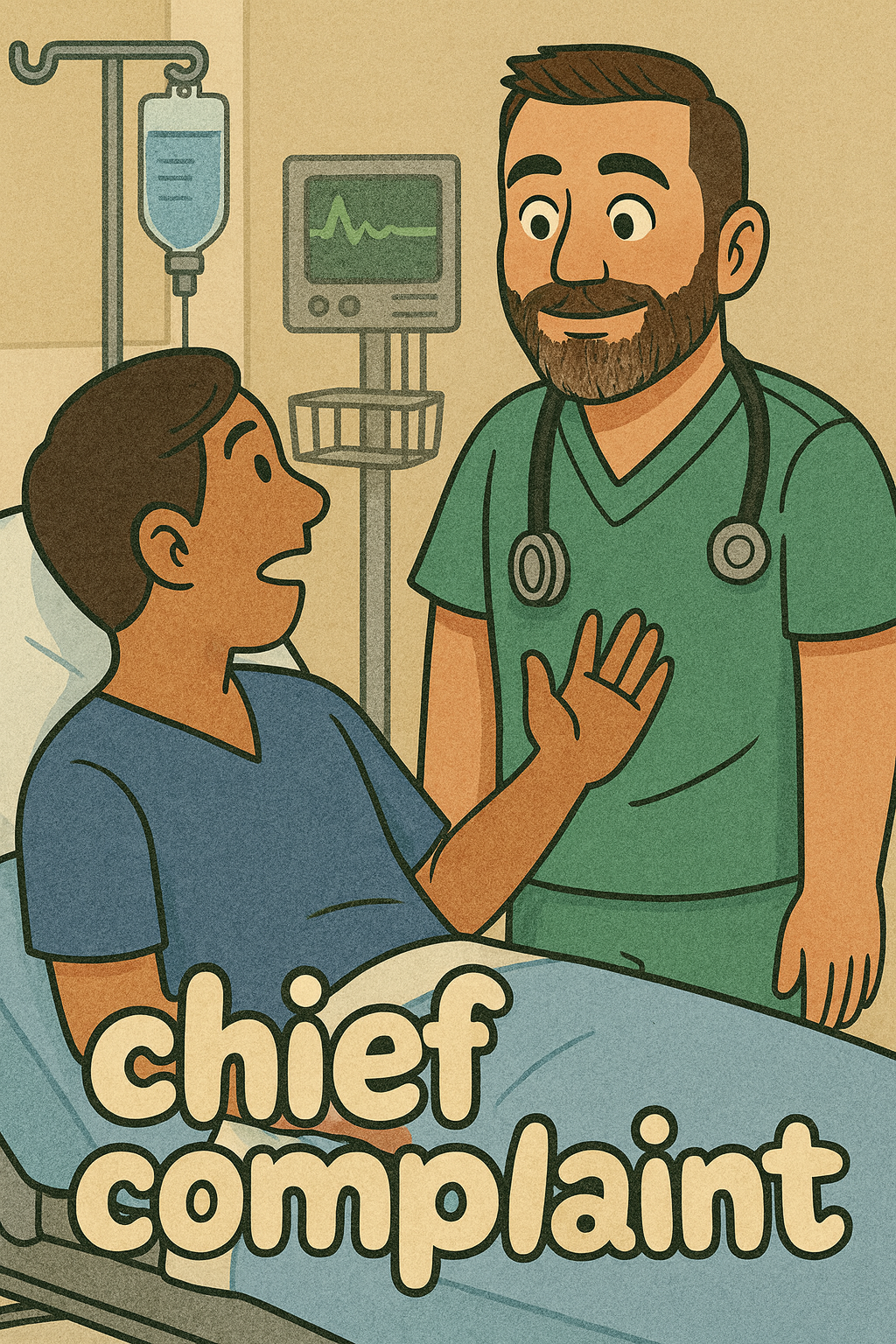What Matters (and What Doesn’t) in Your ER Story
One of the quickest ways to speed up your emergency department visit doesn't involve labs, X-rays, or IVs. It's how you tell your story, or what we call the "Chief Complaint."
5/21/20252 min read


How to Tell Your Story
One of the quickest ways to speed up your ER visit has nothing to do with labs, X-rays, or IVs. It’s in how you tell your story.
We get it—you're in pain, you're worried, and by the time we see you, you've probably already told the same story three times (triage nurse, registration, tech…). But when the clinician finally walks in, a short, focused version of your symptoms helps us land on the correct answer quicker.
Here's the catch: we don't have unlimited time at the bedside. Other patients are waiting, and the ER is constantly juggling priorities. That doesn't mean your story isn't important. It means keeping it tight really helps.
Why Details Matter (But Brevity Wins)
Clinicians are not looking for a novel. We are looking for clues or pieces of your timeline that fit together to form the diagnosis puzzle. Too much background detail can bury the important information.
Your main symptom: Why you came today. Chest pain, shortness of breath, bad headache, belly pain, etc.
When it started: "Two hours ago,” "last night,” "off and on for a week.”
How it's changed: Constant or on and off? Does moving, eating, or stress make it worse?
Relevant history: For chest pain, we care about heart disease, high blood pressure, and diabetes. Your knee surgery from 12 years ago? Probably not part of the plot. (Save that story for when you're feeling better.)
What the ED Clinician is Trying To Hear
We're trained to categorize your story into a few key buckets quickly. Mentioning to us that "I usually walk my dog every night at 7" is a nice context for your life, but it won't influence our CT scan decision.
Onset: When did it begin? Sudden or gradual?
Aggravating/relieving factors: What makes it worse, what makes it better?
Associated symptoms: Chest pain with nausea? Belly pain with fever? Cough with shortness of breath?
Past medical history: Only what connects to today's problem.
Key medications: Especially blood thinners, antibiotics, and cancer-related treatments.
Notice what's not on this list: your complete, color-coded medication spreadsheet. In the ED, most of that won't change how we treat you. See my resources for a quick Medication List Template
Why This Matters
You know your body better than anyone. You don't need to be a medical expert to share your chief complaints and story accurately. When you give us the concise version of your symptoms, it helps us cut through the noise, order the proper tests, and get you answers faster. Think of it like the movie trailer of your health story... short, clear, and hitting the main plot points.